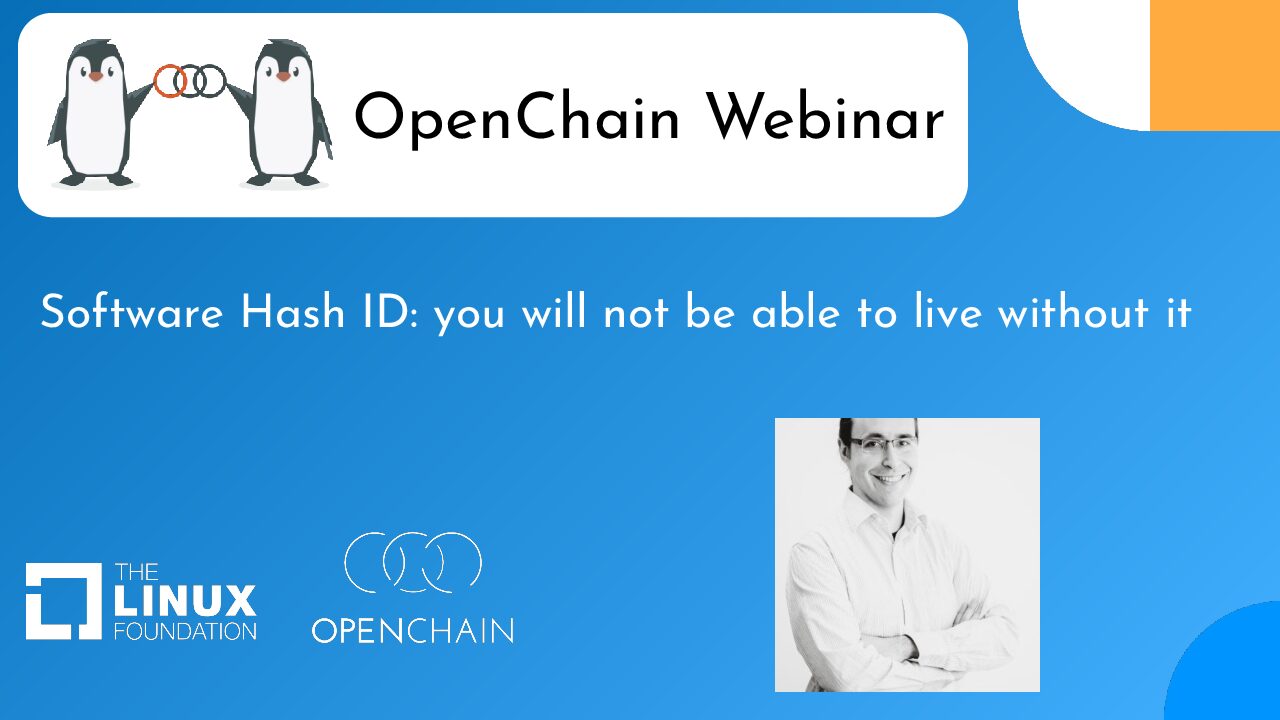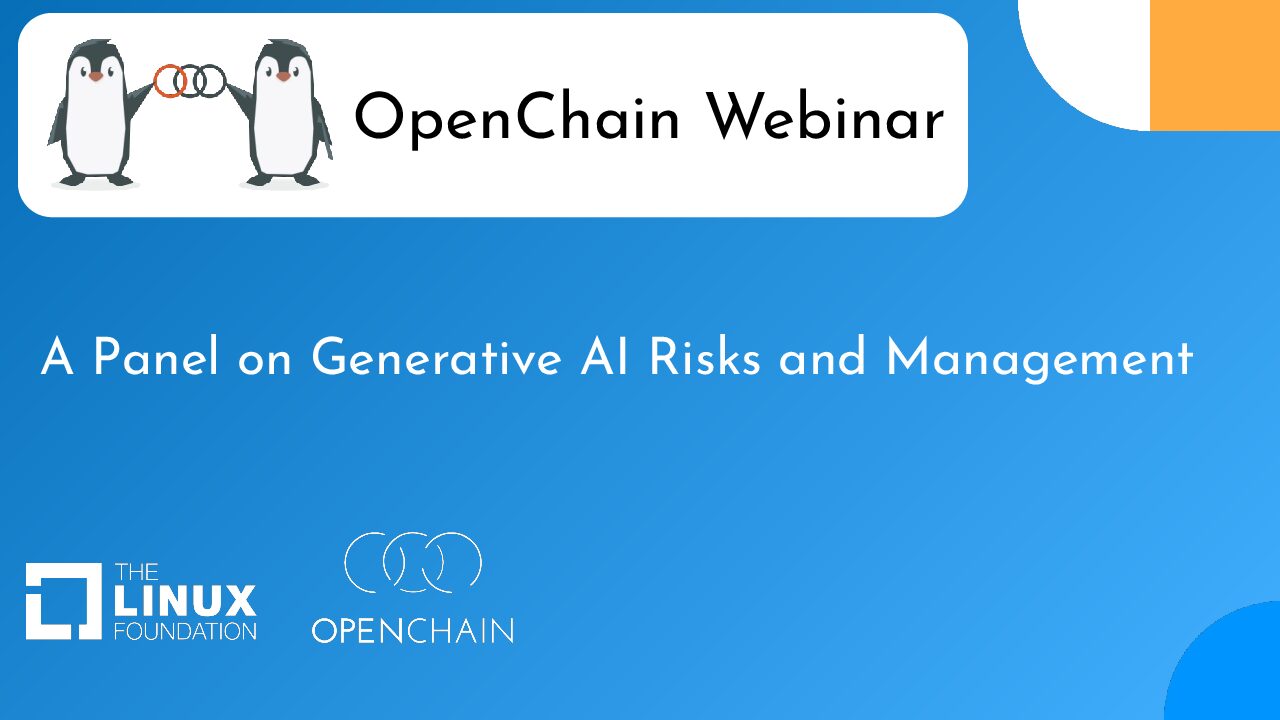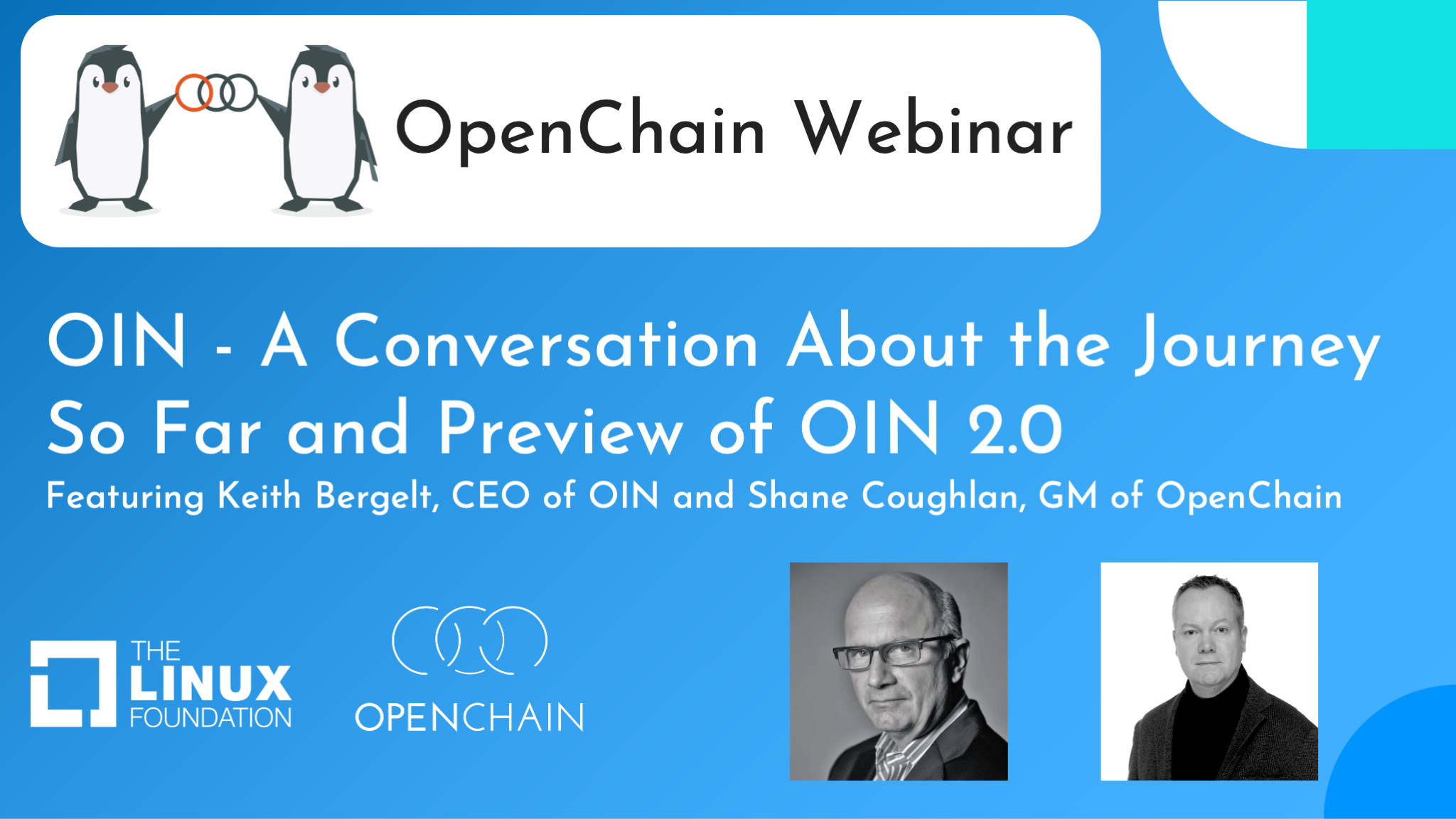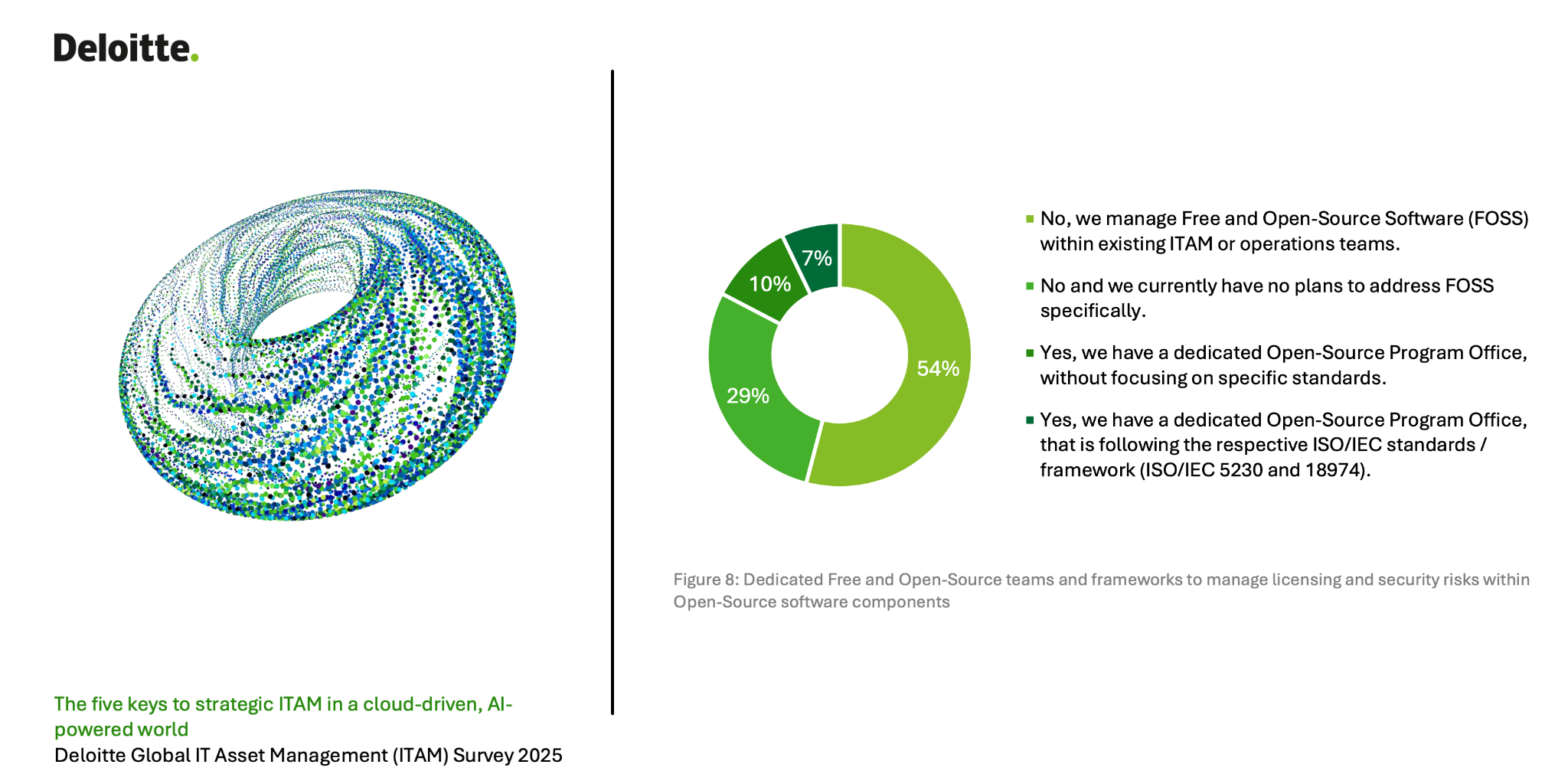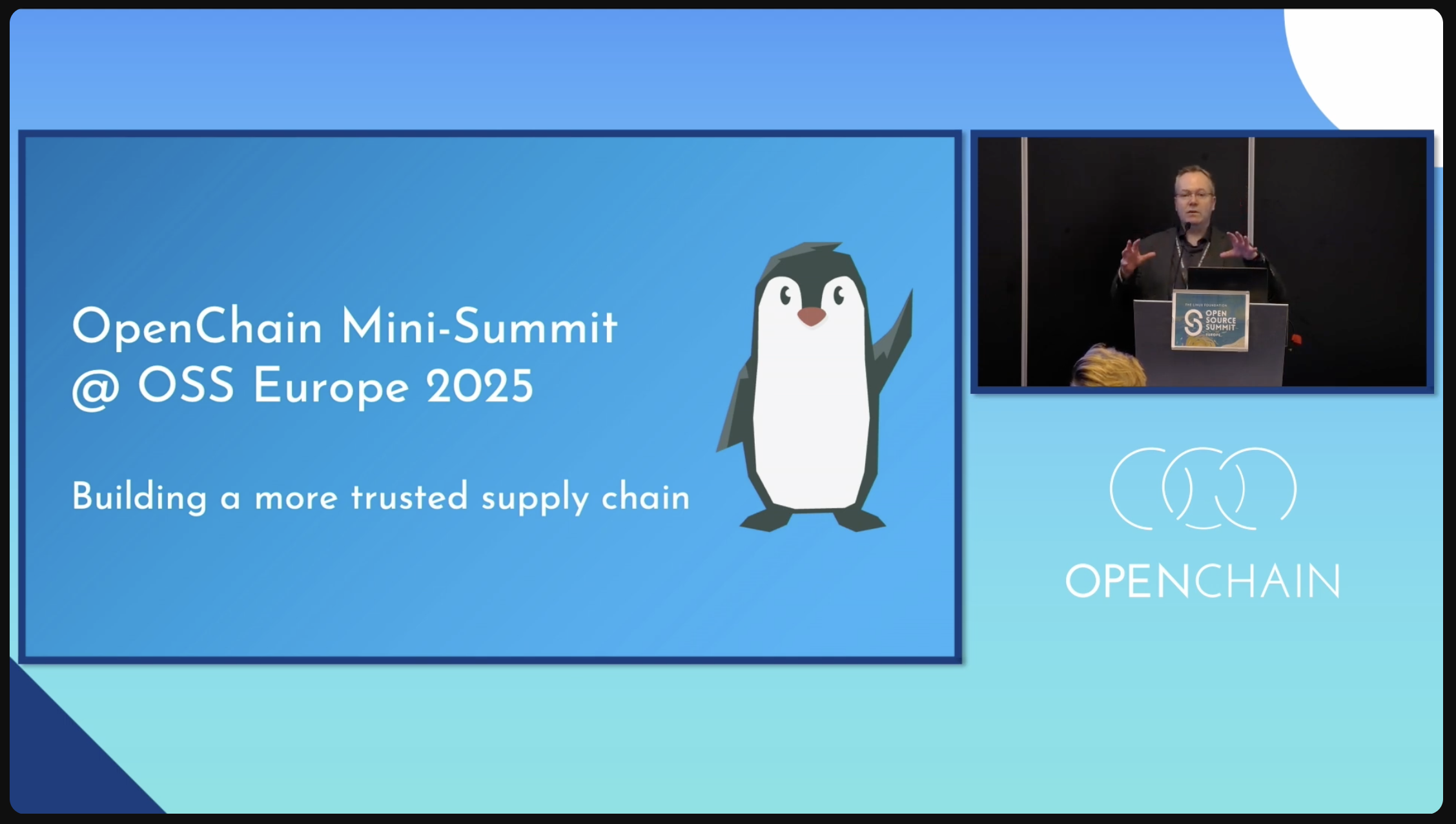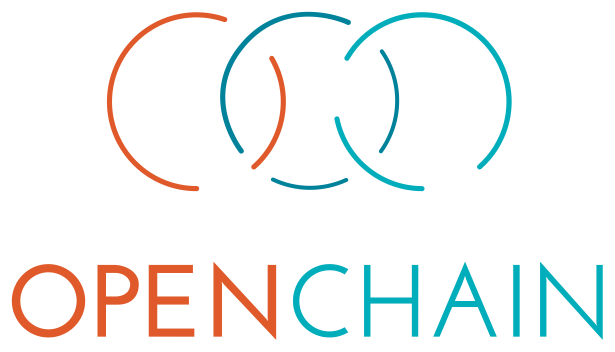As always, we focused on the question of “how do we use SBOMs in production, large-scale and complex supply chains?”
This Meeting Featured:
- A special presentation from Thomas Graf of Siemens on the practical implementation and use of the Siemens SBOM.
- Open Q&A session
- And some updates from the Chair
Watch the Meeting:
Learn More About This Study Group:
Our SBOM Study Group brings all our various SBOM-related activities together and helps answer the question of “how do we use SBOMs in production, large-scale and complex supply chains?” Our original kick-off call has all the details.
Get Involved:
Everyone is welcome to be part of this study group! OpenChain has free, open access to all its work groups and study groups. Just turn up, and listen in, and contribute comments, ideas and suggestions.
✉️ We have a dedicated mailing list: https://lists.openchainproject.org/g/sbom
💻 We have a dedicated GitHub Repo: https://github.com/OpenChain-Project/SBOM-sg
Attend Future Meetings:
You can find and get the dial-in details for all future meetings from our participate page here: https://www.openchainproject.org/participate

